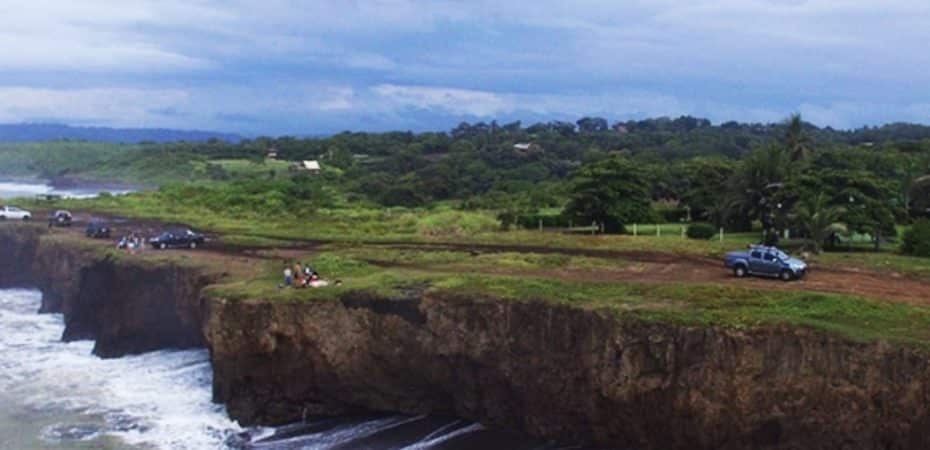Relocating to Costa Rica can be both exciting and intimidating; having someone on your side who knows the ropes can make a significant difference in how smooth things go.
No matter if you are related or working under one of the two digital nomad visas, to live here legally you will require a permit to reside here. This involves providing proof of income, bank account details and other required documents.
Get Your Free Guide to Shipping to Costa Rica
Location
If you are considering moving to Costa Rica, it’s essential that you become acquainted with its unique culture. Visit local events and shops, speak to residents in the area and meet people living nearby to gain more insight into life there.
Know your residency options available – CRIE can assist in understanding the requirements and criteria associated with investor, retirement or family reunification residency status in Costa Rica.
Escazu, located near San Jose and renowned for its cool spring-like climate. Additionally, Atenas on the Pacific coast provides relaxed country living in a safe neighborhood while remaining conveniently close to both airport and beach facilities.
Get Your Free Guide to Shipping to Costa Rica
Weather
Costa Rica’s tropical climate is determined by its location in the tropics, giving its vegetation and fauna their signature tropical characteristics.
Temperature and rainfall conditions differ by region, with an obvious dry and rainy season.
December to April marks the dry season (verano), featuring low humidity and plenty of sunshine. From May through November comes rainy season (invierno), featuring heavy downpours that create lush, green landscapes.
An economical waterproof jacket is always recommended in any climate as the weather can rapidly shift at higher elevations such as mountain towns or rainforest hikes. Be sure to also pack sunscreen and a wide-brim hat as these will both provide shade from the sun while keeping cool – plus flexible water bottles with reusable bamboo cups can come in handy as well.
Cost of Living
Costa Rica provides an economical lifestyle, from retirement in Tamarindo to digital nomading in San Jose. A single expat can live comfortably for between USD$1,500-$2,000 each month.
Living costs in Costa Rica are significantly lower than in the United States. You could rent a traditional Costa Rica bungalow with two bedrooms and two bathrooms for approximately $500 a month.
Expats can secure residency through either an inversionista or pensionado pathway, both enabling legal work while contributing to Mexico’s universal healthcare system, known as “La Caja.”
Property can also be acquired without becoming a citizen; this includes renting or buying villas, apartments and homes in popular expat neighborhoods. However, owning a car in Costa Rica will increase your overall living costs due to high import taxes and maintenance fees.
Get Your Free Guide to Shipping to Costa Rica
Health Care
Costa Rica boasts one of the premier healthcare systems in Latin America. Their expansive public healthcare system, CAJA, offers a broad spectrum of services; however, for expats registering as residents they will first need to prove residency status before being covered under this plan.
Many physicians who work in both systems simultaneously also operate part-time private practices; as a result, patients utilizing both systems may encounter long wait times.
North American expats looking for quick access to Costa Rica’s superior healthcare should consider signing up for a health discount plan in Costa Rica. Many insurance providers provide affordable plans like GeoBlue Xplorer Global Plan which offer comprehensive benefits at an economical monthly cost – perfect for making relocation as smooth and stress-free as possible while living “pura vida!”
Education
Costa Rica is an increasingly attractive option for expat families with young children and offers various educational options for the country’s public schools and private ones alike. Public schools typically follow a calendar based on Spanish curriculum with smaller class sizes for cultural immersion experiences for children while private ones often adhere to US school calendars with English instruction as an additional choice and provide greater residency requirements flexibility.
Life Project Education in Ojochal offers holistic learning for children that emphasizes both their intellect and intuition. Their curriculum utilizes experiential learning methods that emphasize cultivating curiosity as an important lifelong skill. Furthermore, seasonal enrollment options and customizable weekly schedules make Life Project an attractive solution for digital nomads or remote workers.
Source link
admin



